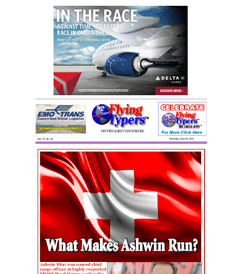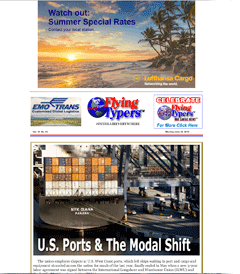| 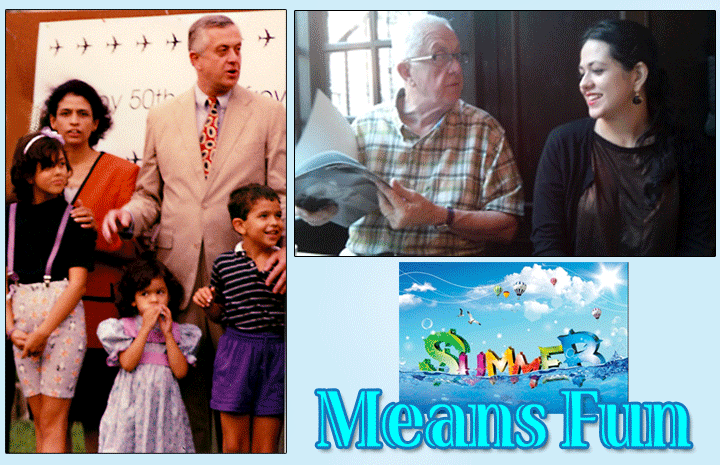
Summer
means fun . . .
It also means being
closer to the kids, and for longer than
perhaps any other time of year.
Our older daughter
Florence, (left to right in 1991 with
parents and siblings, Emily and Ralph;
and today with dad, Geoffrey) who graciously
edits Air Cargo News FlyingTypers
(thereby making this journal a more
intelligent read), is in real life a
writer.
When she was barely
18, The Scholastic Art & Writing
Awards named Flossie among the best
writers in America. (Scholastic Magazine
is distributed to grade schools across
the USA, and the Scholastic Corporation
owns the lucrative Harry Potter franchise)
In any case, Scholastic
gave Flossie her first job out of college,
overseeing the same awards each year
that she had won in 1998.
Flossie won for writing
about her brother, Geoffrey Arend II,
who is now an accomplished actor and
currently starring in CBS’s Madam
Secretary.
But when Geoff was
little (nowhere near six-foot-four,
or the great physical health he now
enjoys) he was sickly and had trouble
with asthma.
Flossie captured this
and became briefly famous for putting
a part of her life experience, while
growing up, to poetry.
Then she moved into
adulthood, graduated from college, and
went to work just as it happens to everyone
else.
Recently, she began
writing again.
This week she woke
up bright and early one morning and
hammered out this piece about the Marine
Air Terminal at nearby LaGuardia Airport.
So as we near Independence
Day in the United States, we also ready
ourselves for a little break.
You can read more
of Flossie’s writing at here,
and at www.flossiewrites.com,
and follow her adventures in knitting
at www.flossieknits.com.
Maybe we can encourage
her to write some more things about
air cargo.
Perhaps a tome with
a title like, “The Ballet of the
Forklift Trucks.”
Geoffrey
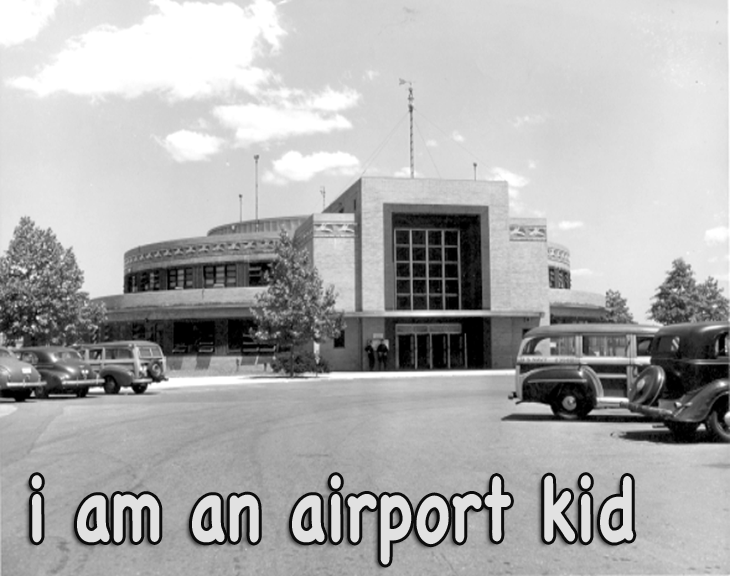
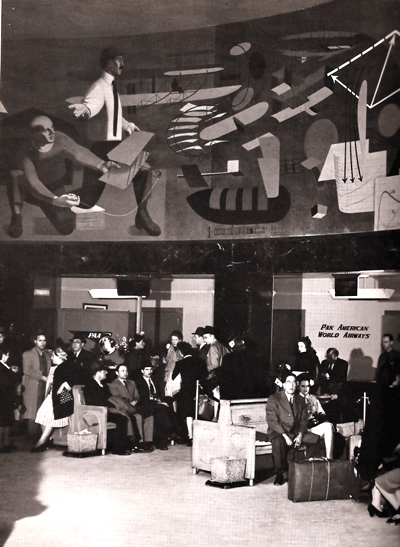 I
grew up at the Marine Air Terminal in
New York City. At the time I was unaware
of the unique perspective it afforded
me—how few children gestated in
the belly of a great, round terminal,
nourished by ephemera and the hollow,
high-topped sound of cavernous spaces
carved in marble. I was a wild thing
in a civilized cave, hiding behind wooden
benches salvaged and meticulously arranged
by my father, who recognized their beauty
and inherent historical value, and saved
them from the garbage heap. Each had
a steel propeller inlaid in its sides,
as if at some miracle moment the propellers
would thrust outward from the wood,
rotate frontwise, and the benches would
steal away in flight. They lined the
rounded walls of the Marine Air Terminal’s
atrium, which pumped the people in from
the streets and fed them to their flights
down ventricular hallways. My father
had also placed four benches in the
center of the room, facing outward,
their sides aligned so each propeller
had a mirror image in its neighbor.
The negative space they created behind
them—a small square of Marine
Air Terminal real estate—was my
island, and I comforted myself by lying
on my back on the floor and looking
straight up at the round ceiling, which
was tiered with concentric circles leading
up to a circular skylight, like some
great windowed eye staring at the sky.
The iris of that eye was the mural my
father saved from obscurity. The great
WPA-artist James Brooks painted his
earth-toned “Flight” along
the upper walls of my cave—it
was my very first picture book. If you
stood in the center of the MAT and rotated
slowly, the story of man’s ascension
to the clouds was depicted in vivid
detail. I
grew up at the Marine Air Terminal in
New York City. At the time I was unaware
of the unique perspective it afforded
me—how few children gestated in
the belly of a great, round terminal,
nourished by ephemera and the hollow,
high-topped sound of cavernous spaces
carved in marble. I was a wild thing
in a civilized cave, hiding behind wooden
benches salvaged and meticulously arranged
by my father, who recognized their beauty
and inherent historical value, and saved
them from the garbage heap. Each had
a steel propeller inlaid in its sides,
as if at some miracle moment the propellers
would thrust outward from the wood,
rotate frontwise, and the benches would
steal away in flight. They lined the
rounded walls of the Marine Air Terminal’s
atrium, which pumped the people in from
the streets and fed them to their flights
down ventricular hallways. My father
had also placed four benches in the
center of the room, facing outward,
their sides aligned so each propeller
had a mirror image in its neighbor.
The negative space they created behind
them—a small square of Marine
Air Terminal real estate—was my
island, and I comforted myself by lying
on my back on the floor and looking
straight up at the round ceiling, which
was tiered with concentric circles leading
up to a circular skylight, like some
great windowed eye staring at the sky.
The iris of that eye was the mural my
father saved from obscurity. The great
WPA-artist James Brooks painted his
earth-toned “Flight” along
the upper walls of my cave—it
was my very first picture book. If you
stood in the center of the MAT and rotated
slowly, the story of man’s ascension
to the clouds was depicted in vivid
detail.
 |
I suppose it was through the great eye
of the Marine Air Terminal that I first
saw the world.
The sound.
The sound of the Marine Air Terminal
is most visceral to me. I’m sure
it had a smell, too, something of lemon-waxed
floors and ocean salt, tinged by the
oily residue of Jet A. But the sounds
stay with me, even now, as sonorous
and forlorn as tolling bells. The clack
of hard-heeled shoes traversing the
marble floors, the rumble of conversations
diluted by space and hovering in the
air like vapor, the distant sound of
Glen Miller’s Moonlight Serenade
permeating every corner. My father had
outfitted the rotunda with speakers
fed directly from his office, and so
his music was everyone’s music.
It played in the background like a halo
of sound descended from on high, out
of reach but always there, as if it
were the sound the environment naturally
generated in its relaxed state—a
law of nature.
My father’s
office. Carefully curated, beautifully
preserved, it encompassed three impeccable
rooms overlooking the road leading to
the Marine Air Terminal. The first room
held his secret sound system, housed
behind a wall—the same sound system
that gave the Marine Air Terminal its
voice. His desk faced the door, as if
he were always readying himself for
a visit. The room to the left of his
desk was like a mini living room, complete
with a couch, a small TV, and a mini-fridge.
He had an autographed picture of Mickey
Mantle on a shelf, which I remember
quite distinctly. If you asked me what
else was on the shelf I couldn’t
tell you, but I can clearly remember
the photo and its signature. The mini-fridge
held M&Ms and sodas, and—my
favorite—Planter’s Cheese
Balls, which no longer exist. If I told
you I felt melancholy about the satisfying
crunch of biting into a chilled Planter’s
Cheese Ball I would understand, but
could not align myself, with your confusion.
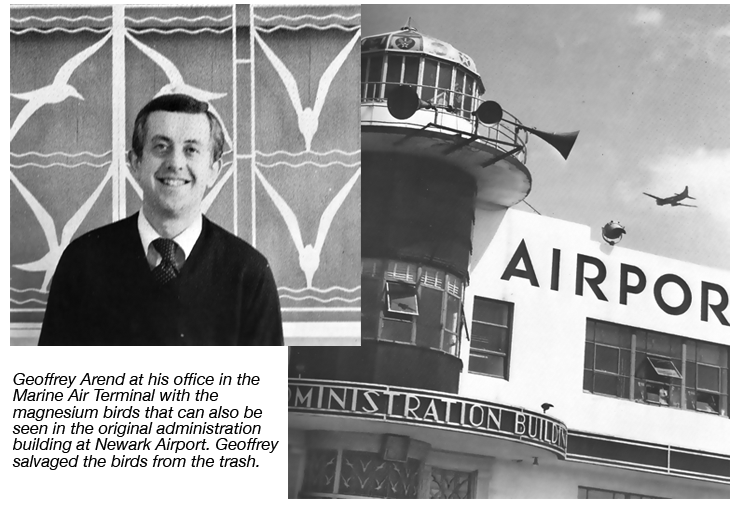 |
The
room to the right of his desk housed
a small cabinet with toys belonging
to myself and my older brother, Geoff,
and a spiral staircase that ended with
a door to the Pan Am Shuttle. The wall
showcased a large piece of art created
by my father—a magnesium stencil
silhouette of birds in flight, hung
behind glass panels and backlit by white
light. Another of his salvage pieces,
my father rescued the birds from 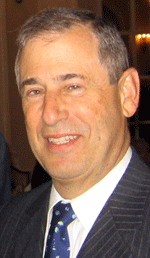 Building
One at Newark Airport. The birds had
once flown above the arrivals/departures
doorway, but my father discovered them
in the trash while delivering editions
of Air Cargo News to Newark Airport.
Building One at Newark was another of
my father’s preservation pet projects.
While the Port Authority had initially
sanctioned renovations on the historic
terminal—and in the process, destroyed
much of the art and architecture of
the place, despite a book my father
published in 1978 in dedication to the
building—later, in 1981, my father
was able to halt further destruction
with the help of Port Authority’s
new aviation director, Robert J. Aaronson. Building
One at Newark Airport. The birds had
once flown above the arrivals/departures
doorway, but my father discovered them
in the trash while delivering editions
of Air Cargo News to Newark Airport.
Building One at Newark was another of
my father’s preservation pet projects.
While the Port Authority had initially
sanctioned renovations on the historic
terminal—and in the process, destroyed
much of the art and architecture of
the place, despite a book my father
published in 1978 in dedication to the
building—later, in 1981, my father
was able to halt further destruction
with the help of Port Authority’s
new aviation director, Robert J. Aaronson.
Geoff
and I often raided the fridge for icy
M&Ms and cheese balls and sat in
front of the toy cabinet, sliding open
its doors to remove our toys. We played
on the spiral staircase and at its bottom,
opening the door to peek out at the
other side of the airport. I remember
thinking it was my Narnia, and the spiral
staircase the equivalent to Lewis’
famous Wardrobe. Our favorite thing
to do, however, was to open the office
door and chase each other down the hallway,
which was circular and closed—a
loop that slanted slightly inward and
felt dizzying to run on. Whoever made
it back to my father’s door first
was the winner. This was a wonderful
game for me, but must have been torture
for my asthmatic brother. Next door
to my father’s office was the
office of the North Beach Club, which
had been furnished with the remnants
of several First Class Lounges. Bathed
in warm browns and rich, deep burgundies,
the space felt shuttered and dark, so
unlike the bright, filtered white light
and steely greys of my father’s
Bauhaus-inspired office. If Geoff and
I were very good, my father would open
his office window and we would stick
our heads out—the windows being
tall and wide, like the windows of a
factory—and watch the planes come
roaring overhead.
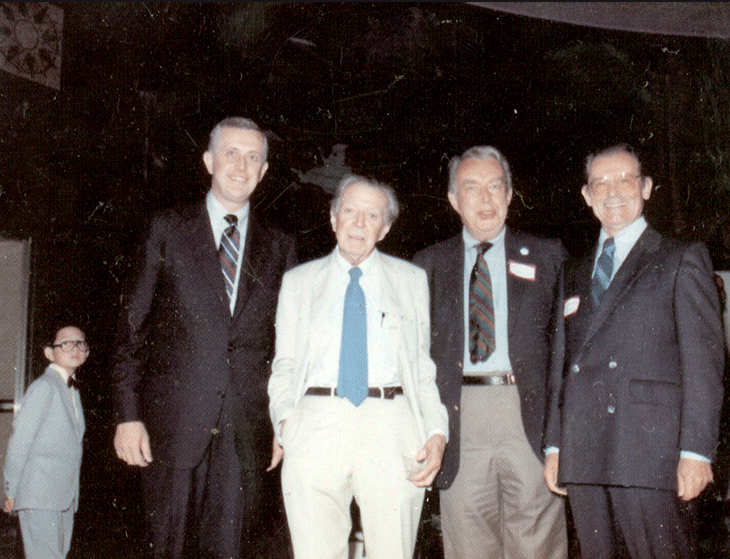
In 1986 at the Marine AirTerminal,
rededication ceremony for the
restored mural, "Flight"
are from left to right: Geoffrey
Arend II (in bowtie), Geoffrey
Arend, artist James Brooks, Curator
William Lieberman, Museum of Modern
Art and the Metropolitan Museum
of Art and Lufthansa Manager North
America, Hans-Dieter Altmann.
|
I was an airport brat. I thought Rocco’s
Yankee Clipper café was my extended
kitchen, and the MAT was my living room.
I got free gum at the newspaper stand
and raced at top speed down every corridor,
and when my father lost his office at
the MAT—how quickly this world
forgets those people who work, tirelessly
and often thanklessly, to preserve its
legacies—I felt like I had lost
a dear, old friend.
I don’t
know what music they’re playing
in the Marine Air Terminal anymore.
I wonder what they’ve done to
my father’s office, and whether
anyone truly knows everything he did
to breath life back into an Art Deco
Grande Dame no one wanted anymore. I
look at pictures of the MAT’s
interior online and feel wistful for
those times when I felt ruddy-kneed
and free to roam, quiet in my thoughts
among the cacophonous sounds of the
airport. My father saved the Marine
Air Terminal for everyone, but I can’t
properly quantify how thoroughly it
saved me.
I’m
an airport kid. You wouldn’t understand.
Flossie
|





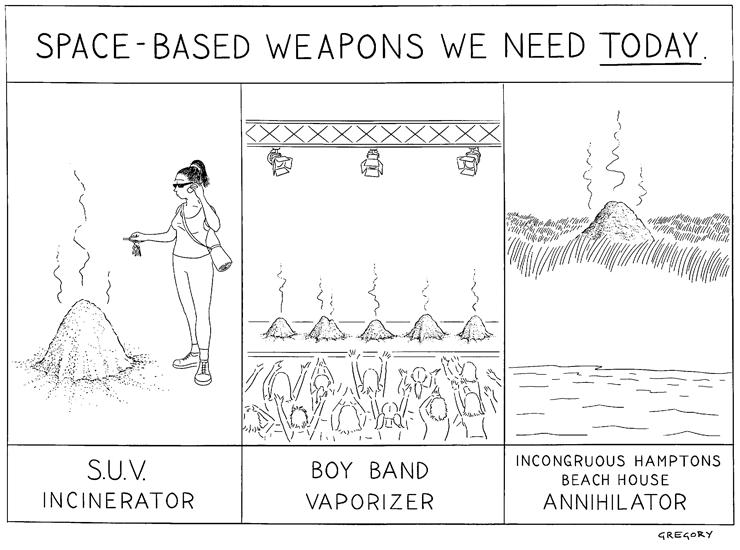

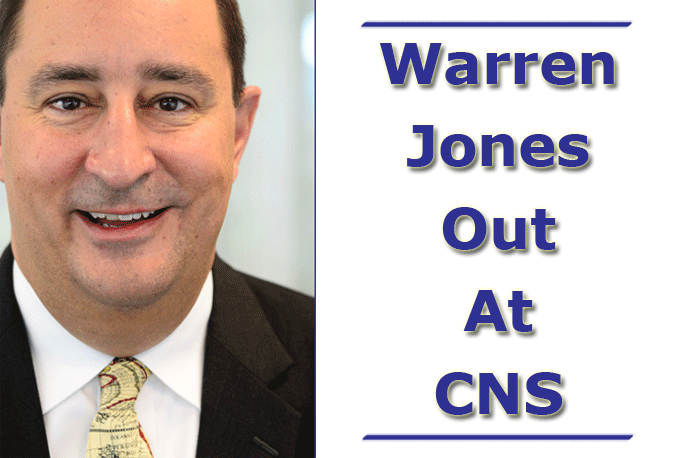

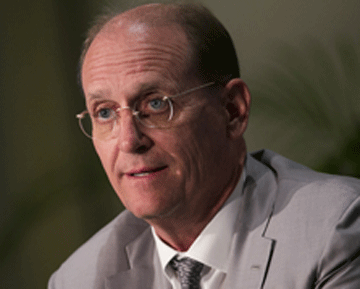 Although
Etihad (EY) and Qatar Airways (QR) are
involved as well, sources say the main
target driving the coalition is Emirates
(EK), which has emerged as a leading
carrier, aircraft buyer, and employer
of people in commercial aviation.
Although
Etihad (EY) and Qatar Airways (QR) are
involved as well, sources say the main
target driving the coalition is Emirates
(EK), which has emerged as a leading
carrier, aircraft buyer, and employer
of people in commercial aviation. But
in Europe, as in the USA, opinions are
divided.
But
in Europe, as in the USA, opinions are
divided. 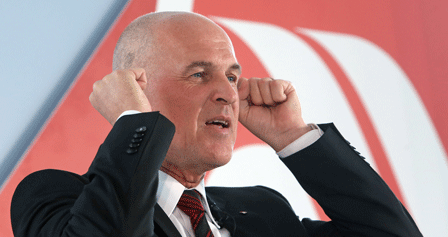 “We
see no future in a protectionist aviation
policy in Europe,” said Air Berlin’s
CEO Stefan Pichler (above right).
“We
see no future in a protectionist aviation
policy in Europe,” said Air Berlin’s
CEO Stefan Pichler (above right). 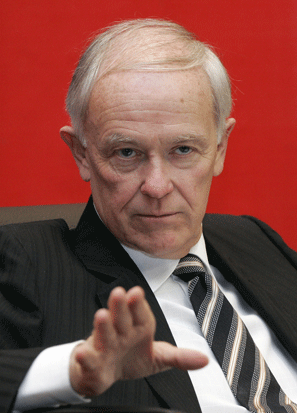 “Emirates
tact of interpreting bankruptcy restructuring
under the strict terms of Chapter 11
(and the subsequent ability to shed
considerable debt under certain circumstances)
as a subsidy received by US carriers,
does not comply with the intent and
the interpretation of applicable U.S.
law.”
“Emirates
tact of interpreting bankruptcy restructuring
under the strict terms of Chapter 11
(and the subsequent ability to shed
considerable debt under certain circumstances)
as a subsidy received by US carriers,
does not comply with the intent and
the interpretation of applicable U.S.
law.”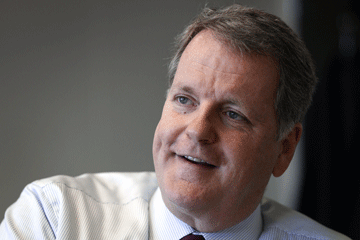 “(EK)
flies (the route) because it thinks
it can undercut everyone else in the
market and use low costs to its advantage.”
“(EK)
flies (the route) because it thinks
it can undercut everyone else in the
market and use low costs to its advantage.”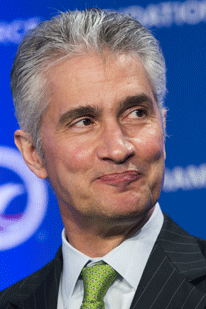
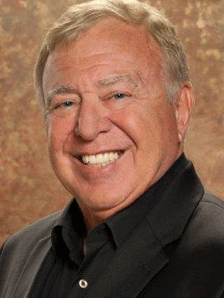 “It’s
hard to see the U.S. overturning the
Emirates initiative to build its airline
company,” said TIACA Hall of Famer
and Middle East expert Bill Boesch (right).
“It’s
hard to see the U.S. overturning the
Emirates initiative to build its airline
company,” said TIACA Hall of Famer
and Middle East expert Bill Boesch (right).


 I
grew up at the Marine Air Terminal in
New York City. At the time I was unaware
of the unique perspective it afforded
me—how few children gestated in
the belly of a great, round terminal,
nourished by ephemera and the hollow,
high-topped sound of cavernous spaces
carved in marble. I was a wild thing
in a civilized cave, hiding behind wooden
benches salvaged and meticulously arranged
by my father, who recognized their beauty
and inherent historical value, and saved
them from the garbage heap. Each had
a steel propeller inlaid in its sides,
as if at some miracle moment the propellers
would thrust outward from the wood,
rotate frontwise, and the benches would
steal away in flight. They lined the
rounded walls of the Marine Air Terminal’s
atrium, which pumped the people in from
the streets and fed them to their flights
down ventricular hallways. My father
had also placed four benches in the
center of the room, facing outward,
their sides aligned so each propeller
had a mirror image in its neighbor.
The negative space they created behind
them—a small square of Marine
Air Terminal real estate—was my
island, and I comforted myself by lying
on my back on the floor and looking
straight up at the round ceiling, which
was tiered with concentric circles leading
up to a circular skylight, like some
great windowed eye staring at the sky.
The iris of that eye was the mural my
father saved from obscurity. The great
WPA-artist James Brooks painted his
earth-toned “Flight” along
the upper walls of my cave—it
was my very first picture book. If you
stood in the center of the MAT and rotated
slowly, the story of man’s ascension
to the clouds was depicted in vivid
detail.
I
grew up at the Marine Air Terminal in
New York City. At the time I was unaware
of the unique perspective it afforded
me—how few children gestated in
the belly of a great, round terminal,
nourished by ephemera and the hollow,
high-topped sound of cavernous spaces
carved in marble. I was a wild thing
in a civilized cave, hiding behind wooden
benches salvaged and meticulously arranged
by my father, who recognized their beauty
and inherent historical value, and saved
them from the garbage heap. Each had
a steel propeller inlaid in its sides,
as if at some miracle moment the propellers
would thrust outward from the wood,
rotate frontwise, and the benches would
steal away in flight. They lined the
rounded walls of the Marine Air Terminal’s
atrium, which pumped the people in from
the streets and fed them to their flights
down ventricular hallways. My father
had also placed four benches in the
center of the room, facing outward,
their sides aligned so each propeller
had a mirror image in its neighbor.
The negative space they created behind
them—a small square of Marine
Air Terminal real estate—was my
island, and I comforted myself by lying
on my back on the floor and looking
straight up at the round ceiling, which
was tiered with concentric circles leading
up to a circular skylight, like some
great windowed eye staring at the sky.
The iris of that eye was the mural my
father saved from obscurity. The great
WPA-artist James Brooks painted his
earth-toned “Flight” along
the upper walls of my cave—it
was my very first picture book. If you
stood in the center of the MAT and rotated
slowly, the story of man’s ascension
to the clouds was depicted in vivid
detail.

 Building
One at Newark Airport. The birds had
once flown above the arrivals/departures
doorway, but my father discovered them
in the trash while delivering editions
of Air Cargo News to Newark Airport.
Building One at Newark was another of
my father’s preservation pet projects.
While the Port Authority had initially
sanctioned renovations on the historic
terminal—and in the process, destroyed
much of the art and architecture of
the place, despite a book my father
published in 1978 in dedication to the
building—later, in 1981, my father
was able to halt further destruction
with the help of Port Authority’s
new aviation director, Robert J. Aaronson.
Building
One at Newark Airport. The birds had
once flown above the arrivals/departures
doorway, but my father discovered them
in the trash while delivering editions
of Air Cargo News to Newark Airport.
Building One at Newark was another of
my father’s preservation pet projects.
While the Port Authority had initially
sanctioned renovations on the historic
terminal—and in the process, destroyed
much of the art and architecture of
the place, despite a book my father
published in 1978 in dedication to the
building—later, in 1981, my father
was able to halt further destruction
with the help of Port Authority’s
new aviation director, Robert J. Aaronson.
